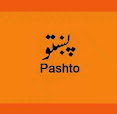خوشا عشرت سرای کابل و دامان کهسارش
که ناخن بر دل گل می زند مژگان هر خارش
خوشا وقتی که چشمم از سوادش سرمه چین گردد
شوم چون عاشقان و عارفان از جان گرفتارش
ز وصف لاله او، رنگ بر روی سخن دارم
نگه را چهره ای سازم ز سیر ارغوان زارش
چه موزون است یارب طاق ابروی پل مستان
خدا از چشم شور زاهدان بادا نگهدارش
خضر چون گوشه ای بگرفته است از دامن کوهش؟
اگر خوشتر نیامد از بهشت این طرف کهسارش
اگر در رفعت برج فلک سایش نمی بیند
چرا خورشید را از طرف سرافتاده دستارش؟
حصار مارپیچش اژدهای گنج را ماند
ولی ارزد به گنج شایگان هر خشت دیوارش
نظرگاه تماشایی است در وی هر گذرگاهی
همیشه کاروان مصر می آید به بازارش
حساب مه جبینان لب بامش که می داند؟
دو صد خورشید رو افتاده در هر پای دیوارش
به صبح عید می خندد گل رخساره صبحش
به شام قدر پهلو می زند زلف شب تارش
تعالی الله از باغ جهان آرا و شهرآرا
که طوبی خشک برجا مانده است از رشک اشجارش
ناز صبح واجب می شود بر پاکدامانان
سفیدی می کند چون در دل شب یاسمین زارش
به عمر خضر سروش طعن کوتاهی ازان دارد
که عمری بوده است از جان دم عیسی هوادارش
نمی دانم قماش برگ گل، لیک اینقدر دانم
که بر مخمل زند نیش درشتی سوزن خارش
گلوسوزست از بس نغمه های عندلیب او
چو آتش برگ، می ریزد شرر از نوک منقارش
درختانش چو سرو از برگریزی ایمن اند ایمن
خزان رنگی ندارد از گل رخسار اشجارش
خضر تیری به تاریکی فکند از چشمه حیوان
بیا اینجا حیات جاودان برگیر ز انهارش
تکلف بر طرف، این قسم ملکی را به این زینت
سپهداری چو نواب ظفرخان بود در کارش
نوای جغد چون آوازه عنقا به گوش آید
خوشا ملکی که باشد شحنه عدل تو معمارش
فلک از آفتاب آیینه داری پیشه می سازد
که گرم حرف گردد طوطی کلک شکربارش
چو از هند دوات آید برون طاوس کلک او
خورد صد مارپیچ رشک کبک از طرز رفتارش
نباشد حاجت سر سایه بال هما او را
سعادت همچو گل می روید از اطراف دستارش
بلند اقبالیی دارد که گر بر آسمان تازد
به زور بازوی قدرت کند با خاک هموارش
ز بس در عهد او دزدی برافتاده است از عالم
نیارد خصم دزدیدن سر از شمشیر خونبارش
رباید تیزی از الماس و سرخی از لب مرجان
نماید جوهر خود را چو شمشیر گهربارش
خدنگش را مگو بهر چه سرخی در دهن دارد
ز خون دشمنان پان می خورد لبهای سوفارش
سری کز جنبش ابروی تیغش بر زمین افتد
که برمی دارد از خاک مذلت جز سر دارش؟
عنان باددستی چون گذارد رایض جودش
اگر صد بادپا باشد که می بخشد به یکبارش
چه گویم از بلندیهای طبع آسمان سیرش
به دوش عرش کرسی می نهد از رتبه افکارش
الهی تا جهان آرا و شهرآرا به جا باشد
جهان آرایی و آرایش کشور بود کارش



























